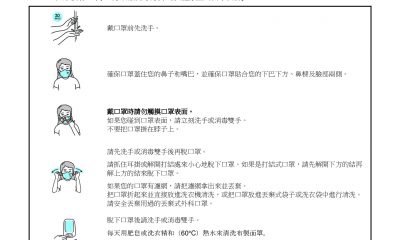
On July 25, 2025, the Hong Kong Police issued arrest warrants for 19 individuals currently residing overseas, accusing them of subversion under Article 22 of the Hong Kong National Security Law. These individuals are alleged to be affiliated with the “Hong Kong Parliament” organization. Authorities have offered bounties—HK$1 million each for four individuals and HK$200,000 each for the remaining 15—urging the public to provide information.
Those wanted include long-time overseas activists, former legislators, academics, commentators, and civil society figures such as Elmer Yuen, Joseph Lian, Victor Ho, Miles Kwok, Lily Chan, Feng Chongyi, Xiaoxia Gong, Carmen Wu, and Simon Cheng. In recent years, they have jointly launched the “Hong Kong Parliament,” an initiative aimed at establishing an alternative representative body through simulated elections and political discourse.
The other 15 individuals named in the case were participants in the organization’s mock parliamentary elections and took oaths of office. They include Bonnie Chien, Haijun Xia, Zhongyu Hou, Wing-yau Ho, Jiawei Jiang, Qian-gan Lin, Carmen Ng, Chun-wa Wong, Siu-wo Wong, and Hsinyen Chang, among others.
According to the police, the “Hong Kong Parliament” seeks to promote “self-determination” and draft a “Hong Kong constitution,” which they assert clearly constitutes acts of subversion. Authorities emphasized that the warrants are both legal and necessary, calling on those involved to surrender voluntarily. They also warned that any individuals who fund, assist, or shelter the wanted persons may also be in violation of the law.
The Hong Kong SAR Government and the Liaison Office of the Central People’s Government in Hong Kong expressed support for the police action, denouncing the organization as one that subverts state power under the guise of democracy, undermines constitutional order, and threatens national security. They also accused Western powers of backing such groups and interfering in China’s internal affairs.
The case has drawn significant international attention. The U.S. State Department expressed “deep concern” over what it called Hong Kong’s cross-border law enforcement efforts, viewing the warrants as a threat to freedom of speech and political expression. The UK Foreign Office stated it would not extradite any of the wanted individuals and condemned Beijing’s repression of overseas dissent.

 COVID-19 Around the World4 years ago
COVID-19 Around the World4 years ago
 Cuisine Explorer5 years ago
Cuisine Explorer5 years ago
 Tagalog5 years ago
Tagalog5 years ago
 Uncategorized5 years ago
Uncategorized5 years ago
 Cantonese - Traditional Chinese5 years ago
Cantonese - Traditional Chinese5 years ago
 Uncategorized5 years ago
Uncategorized5 years ago
 Uncategorized5 years ago
Uncategorized5 years ago











